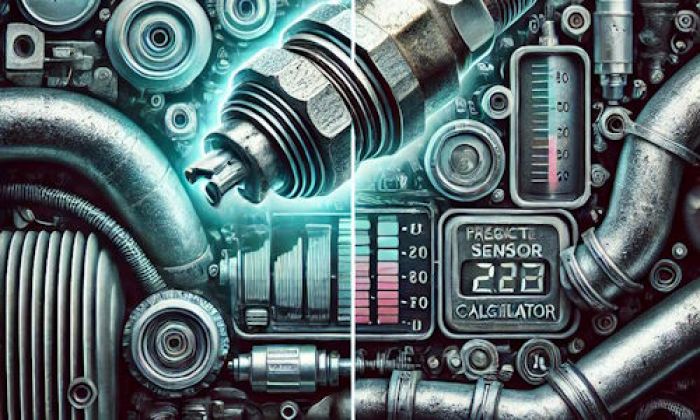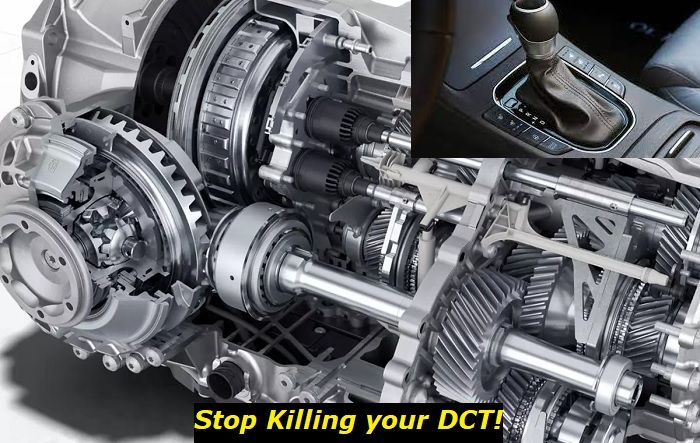Audi is a renowned and prestigious car brand that produces some of the world's highest quality vehicles. With a blend of luxury, comfort, and innovative technology, they are absolutely stunning and incredibly reliable.
These German-engineered luxury vehicles are well-reputed for their high-tech features and impressive engine power. So, with stylish looks and high levels of performance, you are guaranteed a refined driving experience and peace of mind.
Although Audi is Volkswagen's "Luxury Brand", these vehicles are not flawless. The Audi is no exception to issues and is known to encounter some engine problems that can affect its performance.

If you are a fan of Audi vehicles, we are sure you are already aware of their famous and commonly used 1.8 engines. Although these engines are quite old now, they can still be encountered on the road and they are worth our attention.
Despite their reputation as a "Little Powerhouse", they certainly have their share of faults and issues that should not be taken lightly. If you happen to own an Audi with a 1.8 engine, here are some of the most common engine problems you are very likely to experience.
Key features and my opinion about the engine
- Production years:1996-2008
- Average lifespan of 1.8T:190,000-220,000 miles
- Fuel supply type:port injection
- Power range:150-180 hp
- Fuel efficiency:average
- Engine block material:cast iron
- Engine reliability score:high
- The most common problems:turbochargers may malfunction when the exhaust system isn't good, crankcase ventilation system problems, the timing chain tensioner isn't that durable, sensors are pretty faulty.
Oil Sludge Build-Up
If you have ever owned an Audi with a 1.8 engine for long enough, you have most likely faced the miserable issue of oil sludge build-up. One of the main reasons it is so common with the 1.8 engines is because of their low oil capacity.
The oil sludge issue has been like a plague hovering over the VW/Audi brand for a while now. There have already been many cases of settlements and extended warranties offered by the company due to the oil sludge build-up issues.
When the unstable engine oil is exposed to oxygen and extreme heat, it oxidizes pretty quickly. As a result of the exposed oil mixing with dirt, fuel, metallic particles, water, gasses, and coolant during oxidation, it forms a thick and sticky gel-like sludge.
This sticky built-up sludge can easily clog up every single inlet and outlet, as well as cause blockages in the oil pickup tube. Furthermore, it can eventually block the engine's oil flow, causing additional stress on the radiator and the entire engine cooling system.
Therefore, it is extremely important to have your engine completely cleaned of any built-up sludge before you end up with serious engine damage. Here are some symptoms of built-up oil sludge to keep a lookout for.
- When the oil pressure is low
- Blinking or flashing low oil light signal while the car is running
- If there is oil/grease visible on the oil filter
- If you see the "Limp mode" sign
Since it is part of the actual design, there is not much that can be done about the undersized oil supply/low oil capacity. However, you can avoid the headaches of dealing with built-up oil sludge through proper maintenance, using the correct oil, and on-time oil changes.
As for cleaning out oil sludge that is already built up, there are three possible different solutions. You can try to hand clean, use certain chemicals, or go to your nearest shop and get it cleaned professionally.
Ignition Coil Pack Issues
Premature ignition failures due to bad coil packs are another problem that is very common amongst Audi vehicles with 1.8 engines. When the ignition coils have gone bad or are not working properly, the engine will lose power and lack in its performance.
These ignition coils are basically transformers needed to take the power coming out of the battery and relay it to get sparks from the spark plugs to ignite the fuel and make the vehicle run. There is one individual coil pack designated for each of the 4 cylinders working simultaneously to keep your engine running smoothly.
Once you have at least one coil pack that is faulty or with a problem, you will experience trouble starting the engine or misfiring in that specific cylinder and other issues related to the power of your engine. If you happen to have two or more failing coil packs, most likely your engine will not start at all.
Also continuously driving with ignition coil pack failure will eventually damage the engine and result in much more expensive repairs. That is exactly why it is much better to be on the safe side and replace coil packs every 60,000 miles and spark plugs every 30,000 miles as per most recommendations.
Below are some pretty common and easy symptoms that can help you with diagnosing faulty ignition coil packs. However, depending on the severity of the coil failure, the symptoms may vary from case to case.
- Engine Misfiring and stalling
- Poor fuel economy
- Difficulty starting the engine
- Low engine performance
- Rough Idle
The ignition coil packs can fail due to normal wear and tear or from simply having faulty coil packs. As for replacing a bad ignition coil pack, it is always better to replace all 4 together to get better results and avoid future problems.
Water Pump Failure
Your vehicle's water pump is without a doubt one of the most crucial parts of the entire engine. As the water pump carries coolant from the radiator into the engine, it keeps the running engine at an optimum temperature.
However, if the water pump fails to run water through the engine, that will cause the engine to overheat at a very rapid pace. Without a functioning water pump, there is no way to stop the overheating nor prevent the engine from being damaged by excessive heat.
Unfortunately, for Audi owners with 1.8 engines, water pump failure is another very common problem. The impellers within the water pump for these vehicles happen to be made of plastic, making them much more prone to failure.
Water pump failure may sound like a simple problem but can cause catastrophic damage to your vehicle's engine. To help you avoid such a terrifying situation, here is a list of some common signs related to water pump failure.
- Engine overheating (white smoke/steam coming out)
- Leaking water pump
- Loud noise coming from the water pump
- Low coolant level
Having a plastic impeller within the water pump and your normal wear and tear are two of the main causes of water pump failures. As water pump failure can result in major engine damage, it will be wiser and cheaper to pick up on the symptoms early and stay one step ahead of the problem.
Timing Chain and Tensioner Failure
The timing chain is an extremely important component of your Audi's engine as it links the cylinder head, camshafts, and crankcase, enabling them to run in sync. The tensioner has the role of maintaining the timing chain's tension to function properly.
Although timing chain failures are not that common with VW/Audi vehicles, the tensioner failure on the other hand is a completely different story. One of the main reasons for timing chain tensioner failure is because of what they are made of.
As it so happens to be, the timing chains in VW/Audi vehicles are not considered the most reliable straight out of the factory. Therefore, the chains are more likely to get stretched out faster from the wear-and-tear and become too loose.
If the timing chain tensioner fails, it will cause the chain to rattle or even to jump and the engine's timing will be off. Once the timing chain fails, your engine will totally shut off and will not turn back on at all.
Therefore, it is very important to be aware of the symptoms related to your timing chain and tensioner failure. If you notice any of the below signs and symptoms, it may be time to replace your timing chain assembly.
- Ticking or rattling noise coming from the chain or tensioner
- Sluggish or lack of engine performance
- The engine not turning over
- Engine misfires
Timing chain and tensioner failure can lead to pistons and valves colliding, causing major damage to the inner parts of your engine. To avoid such expensive repairs, it is recommended to change your timing chain assembly every 100,000 miles.
Turbo problems
Although they are not so common, turbo problems may kill this engine pretty fast. These problems are obvious now because most of these engines have already gone more than 150,000 miles and now they all have these issues.
You will avoid problems with the turbocharger in the 1.8 Audi engine if you use optimal oil and change it even earlier than recommended. Otherwise, you may see your turbocharger failing suddenly and the engine will become sluggish as a sloth.
The worst thing is that to repair or replace the turbocharger, you will need to invest quite a lot, even though the vehicle is old and has the low residual value.
Conclusion
Audi is one of the world's top luxury car brands with a huge fan base around the globe. They are acknowledged and respected globally for making powerful and high-performing vehicles that offer a sporty ride.
Their 1.8 engines are strong, flexible, and an excellent example of the brand's innovative and ground-breaking technology. Of course, they have their pros and cons, but so do any other high-performing engines found in most modern vehicles.
Whether you are driving an Audi or anything else, most experienced drivers know that the performance of the vehicle mostly depends on the condition of the engine. That is precisely why doing little things like on-time oil changes and replacing worn-out parts are so important.
Regardless of quality issues or technical mishaps, all of the common engine problems mentioned above can be easily avoided through proper maintenance. By following the maintenance schedules and using the proper recommended oil, these engines can go through over 200,000 miles without any major problems.
About the authors
The CarAraC research team is composed of seasoned auto mechanics and automotive industry professionals, including individuals with advanced degrees and certifications in their field. Our team members boast prestigious credentials, reflecting their extensive knowledge and skills. These qualifications include: IMI: Institute of the Motor Industry, ASE-Certified Master Automobile Technicians; Coventry University, Graduate of MA in Automotive Journalism; Politecnico di Torino, Italy, MS Automotive Engineering; Ss. Cyril and Methodius University in Skopje, Mechanical University in Skopje; TOC Automotive College; DHA Suffa University, Department of Mechanical Engineering






Add comment